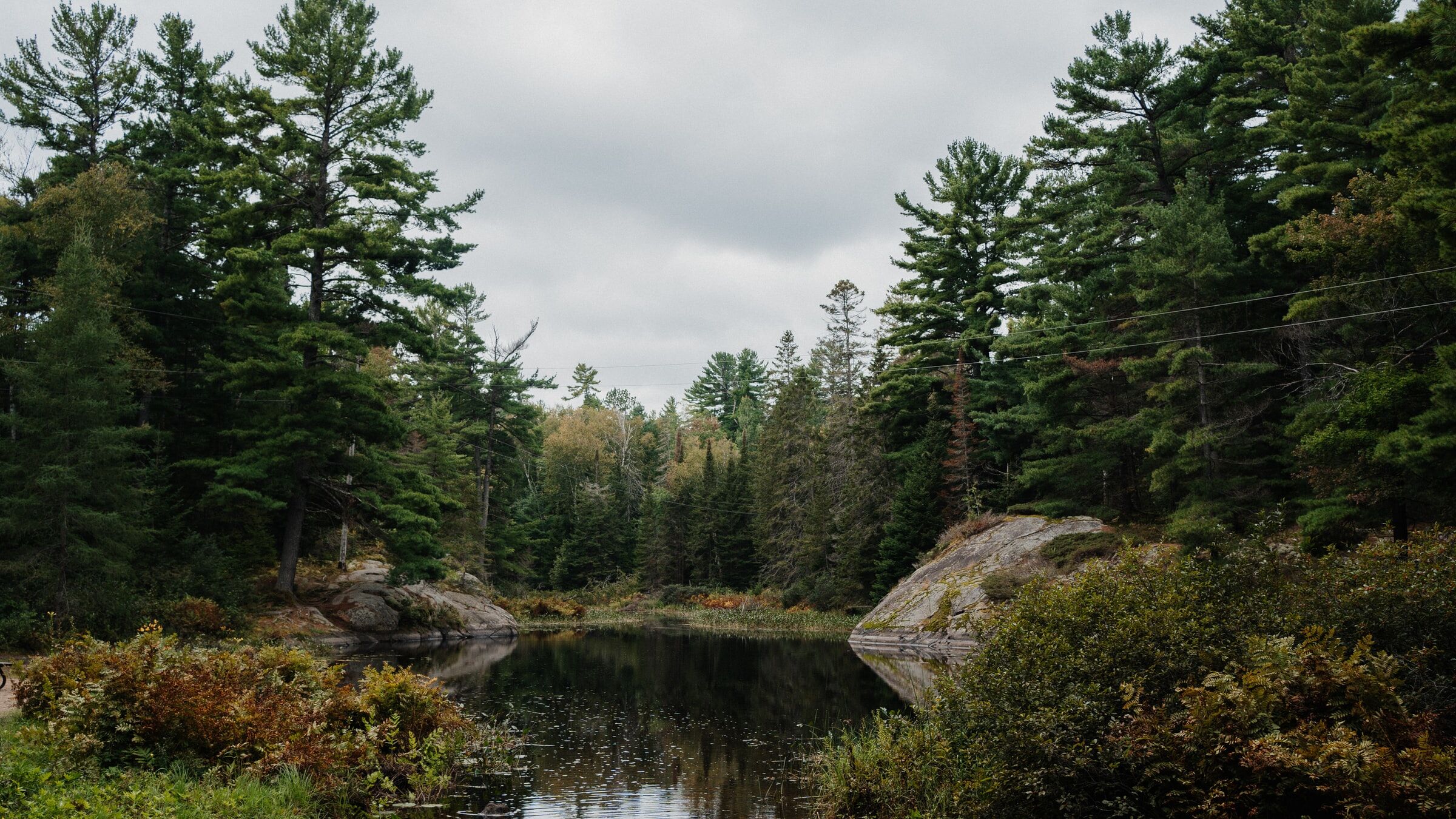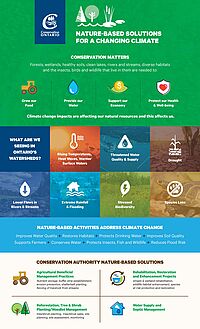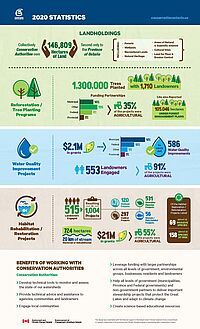Nature-based Climate Solutions
Nature-based climate solutions are actions to conserve, sustainably manage and restore ecosystems which, in turn, help to:
- store and capture carbon,
- mitigate and reduce the impacts of climate change,
- build watershed resilience and improve water quality, and
- provide critical habitat for Canada’s wildlife.
Tree planting, habitat restoration and rehabilitation and land acquisition are examples of management practices that are nature-based activities.
Conservation Authorities work with a wide variety of partners to deliver programs around tree planting, water quality improvement, flood risk reduction, habitat rehabilitation and restoration as well as agricultural management practices, all of which helps to build local watershed resilience.
Nature Smart Climate Solutions Fund – Partnership with Conservation Authorities
Conservation Ontario is currently working directly with 21 conservation authorities to deliver 83 projects from 2021 to 2025 that deliver on multiple nature-based solutions through funding granted from Nature Smart Climate Solutions Fund for Place-based Actions (Environment and Climate Change Canada).
Projects take place on conservation authority-owned or managed lands as well as on private lands and will provide long-term agreements, ensuring lasting benefits.
Conservation Authority Projects StoryMap
View Full Screen
CAs Delivering Nature Smart Climate Solutions
- Ausable Bayfield Conservation Authority
- Catfish Creek Conservation Authority
- Central Lake Ontario Conservation Authority
- Conservation Halton
- Credit Valley Conservation
- Essex Region Conservation Authority
- Grand River Conservation Authority
- Kawartha Conservation
- Lower Thames Valley Conservation Authority
- Lower Trent Conservation
- Maitland Valley Conservation Authority
- Mississippi Valley Conservation Authority
- Niagara Peninsula Conservation Authority
- Nottawasaga Valley Conservation Authority
- Raisin Region Conservation Authority
- Rideau Valley Conservation Authority
- South Nation Conservation Authority
- St. Clair Region Conservation Authority
- Toronto and Region Conservation Authority
- Upper Thames River Conservation Authority


